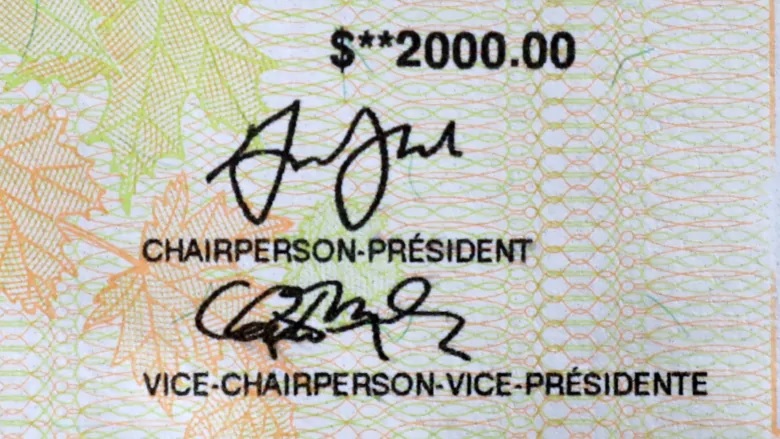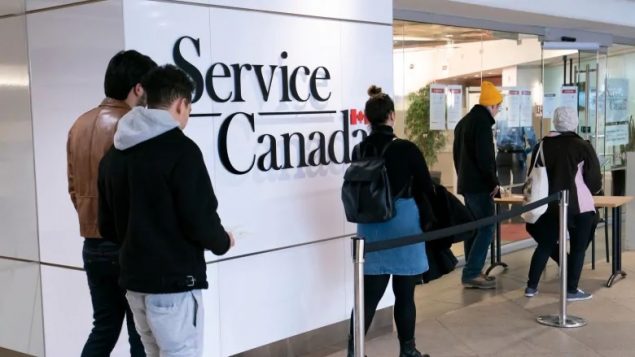Prime Minister Justin Trudeau is cautioning that programs that supply emergency benefits to help Canadians get through the coronavirus pandemic won’t be around forever.
Speaking Wednesday at a virtual event hosted by the Financial Times, Trudeau said just because aid programs are helping during the pandemic doesn’t mean they’ll be useful once the crisis passes and, he said, the extra benefits likely won’t stick around.
“Let’s not pretend that something that works right now, gives us stability,” Trudeau said in a pre-recorded interview.
“That’s not a measure that we can automatically continue in a post-pandemic world.
“I think there are really important reflections to have on how we provide income supports and how we make sure that everyone is given opportunities.”

Part of a cheque for the $2,000 Canada Emergency Response Benefit (CERB), a taxable award from the Canadian government made every 4 weeks to eligible workers who had lost their income due to because of the coronavirus pandemic. (Chris Helgren/Reuters)
From March to October, the Canada Emergency Response Benefit paid out $81.6 billion to just under nine million people, providing them with $500 a week.
Since then, three benefit programs that replaced what became known to Canadians as CERB have paid out nearly $2.3 billion–with the majority of the money going to the more than one million people who have used the Canada Recovery Benefit for those out of work.
The benefits extend to next summer.
Trudeau said the benefits–as well as an extension to the Canada Emergency Wage Subsidy Program, a new commercial rent relief program, and extra help for companies closed by local lockdowns–are all automatic stabilizers to ease conditions through a second wave of COVID-19.
The Senate still must approve the extension of the wage subsidy program to next summer and Deputy Prime Minister and Finance Minister Chrystia Freeland is scheduled to appear at the Senate finance committee today to testify on the bill, known as C-9.
She is expected to be asked about creating a no-strings-attached basic income program that sets a financial floor for individuals and families.
“What we’re doing now shouldn’t be conflated with things that we might or could do in the future,” Trudeau said Wednesday when asked about basic income.
“I think we have to get through this before we start designing a whole new universe of social supports.”
The parliamentary budget officer recently revised its estimates for providing a basic income for six months to almost all Canadians,.
It projected a cost of between $30.5 billion and $71.4 billion–down from $47.5 billion and $98.1 billion outlined in July.
The latest analysis predicted the overall cost would grow annually until it hit between $84.2 billion and $197.2 billion in 2025, depending on how much of the benefit is clawed back from people whose other incomes increase.
Trudeau noted that much depends on the path the pandemic takes, saying that the government is watching to see how things play out because things can change fast.
With files from The Canadian Press (Jordan Press), CBC (Kathleen Harris)







For reasons beyond our control, and for an undetermined period of time, our comment section is now closed. However, our social networks remain open to your contributions.